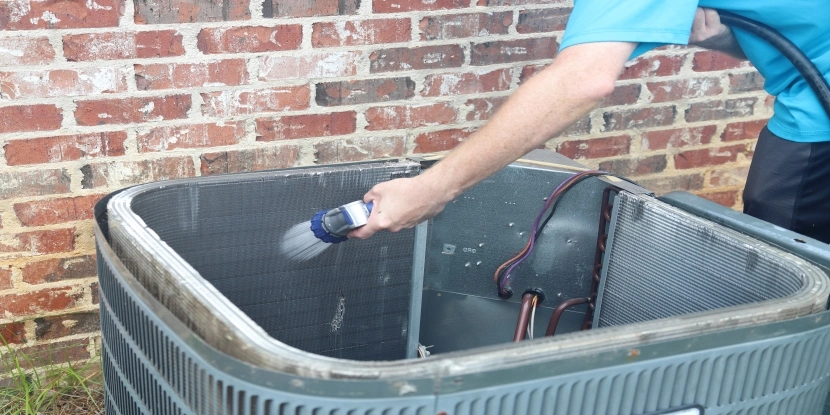Is an HVAC Maintenance Plan Worth It?

If you bought your house new, or your home has a new HVAC system, it’s easy to assume maintenance won’t be an issue. As long as the HVAC system isn’t giving you any problems and you change the air filter regularly, you should be able to go for years without any troubles, right? Well, not necessary. Even new HVAC systems can break down, especially if you’re not as diligent about maintenance as you should be. An HVAC maintenance plan can help keep your HVAC system running smoothly and prevent expensive breakdowns, but are these plans worth the cost—especially in a Canadian climate?
Your HVAC and Your Climate Region
Canada is a large country with many climate regions, and each region can affect your HVAC system differently. Understanding your climate region can help you determine if an HVAC maintenance plan is right for you.
- Arctic—The long, harsh and very cold winters of this region can be rough on your HVAC system if it’s not properly maintained. Extreme cold negatively affects all machinery, so it’s important to keep your furnace in top shape. Even though you may not need an air conditioner in this region, the summers can produce enough rain to deposit dirt, twigs, and other debris that can damage your heat pump’s condenser fan grille.
- Taiga—Although this region may have cold winters, the temperature can climb high enough in the summer to cause water from melted snow to leak into your HVAC system, causing corrosion and rust problems. If undetected, the rust can build up, damage the machinery, and lead to expensive repairs.
- Cordillera—Extending from southern British Columbia to the northern Yukon, this region has quite a few different climates. In fact, locations only a few kilometers apart may have very different temperature and precipitation patterns. If you live in an area known for its heavy rain, leaks and rust can be a problem but even the drier areas can have high winds that cause damage to your heater, ductwork, or air conditioning unit.
- Pacific Maritime—The moderating effect of the Pacific Ocean keeps most coastal locations above freezing during winter, and cool during summer. If you live in this area, you’re lucky because this climate is one of the easiest on your HVAC system. The main risk to your equipment is usually storms that cause debris damage or disrupt your electricity.
- Boreal—The temperature changes due to the cold winters and warm summers of this region can cause havoc with the fluids in your HVAC system’s compressor. As a result, the lubrication oil thickens, which makes the unit less efficient.
- Prairie—In the heart of Canada, this region tends to be dry in both winter and summer. When cooling dry air in the summer or heating dry air in the winter, your HVAC system may have to run longer and harder due to the lack of moisture. This can put more of a strain on your HVAC system throughout the year.
- Southeastern—Global climate change is causing hotter weather in many regions of Canada, and this is one of the affected regions. Home to many of Canada’s urban centers, this area contains populations that are susceptible to extreme temperatures. These bouts of heat can cause strain on air conditioning systems, even if they’re new, and the results can be tragic. For example, 54 people died during a recent heat wave in Quebec, most of whom either had no air conditioning or whose AC units had stopped working.
- Atlantic Maritime—Similar to the Pacific Maritime region, this coastal area has mild winters and summers. However, unlike the Pacific coasts, this region occasionally feels the effects of Atlantic hurricanes. The heavy rains and high winds of these storms can affect your heating and air conditioning systems if they don’t get routinely checked by an HVAC technician.
Just looking at this list, it’s easy to see how climate can play a huge role in how your HVAC system performs. A poorly maintained system will operate less efficiently, increasing the likelihood it will breakdown prematurely. Like in the middle of a cold winter night. Other adverse effects can be more subtle, like high energy bills. But whether your climate is harsh or mild, an HVAC maintenance plan can help you keep your heating and cooling system working at peak performance and help you avoid an unexpected breakdown and big repair bills.
Related Topic: HVAC Maintenance Tips
Calling In the Professionals
As homeowners, we’ve all gotten used to doing a certain amount of DIY activities around the house. We even do simple HVAC chores like changing the air filters or removing debris from outside units and spraying them down when they get dirty. But there’s more to HVAC maintenance than simple cleaning and changing your AC filter—and this is where Aire Serv comes in. When you sign up for an HVAC Advantage Plan, the professionals at Aire Serv will make sure your heater, furnace, and air conditioning are serviced regularly including vent inspections, cleaning condenser coils, testing electrical connections, lubricating moving parts, and all the other necessary scheduled maintenance and performance tune-ups.
Not only will this ensure your system performs at peak efficiency, but it can also prevent a breakdown during the next heat wave or arctic blast. Contact Aire Serv today and let them set you up as a preferred customer with priority service, scheduling, and pricing.
 Click to call
Click to call


